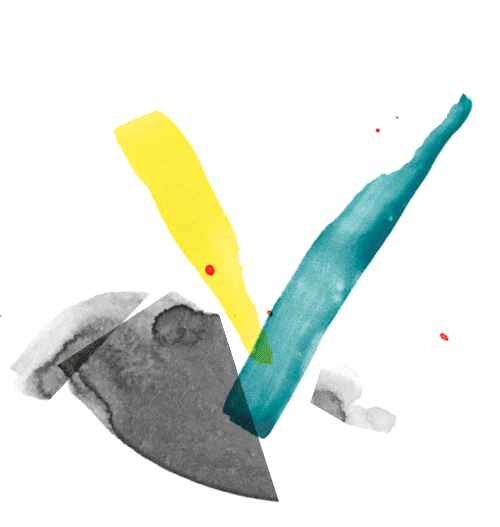

Sign up for our newsletters. You can change the settings or unsubscribe at any time.
Thank you for your subscription. We have sent you an e-mail with a confirmation link.


exp. 1
exp. 2
exp. 3

Antonio Pichillá
Venue: Gropius Bau
Antonio Pichillá
Born 1982 in San Pedro La Laguna, GT – lives and works in San Pedro La Laguna
The video piece Golpes y Sanación [Blows and Healing, 2018] by Antonio Pichillá shows the artist traversing a lush landscape and striking certain elements—the leaf-covered ground, a tree branch, rock, water from a river—with a knotted rope that makes reference to the shamanistic practice of healing trauma by returning to the scene of its origin. Natural materials like wood, stone, thread, and woven fabrics as well as sacred and ritualistic objects abound in the work of Pichillá, who draws from Mayan epistemology to create intercultural abstractions with his textile pieces and large-scale installations.
“Everything is amorphous, confusing,” the artist explains. “I restlessly look for a bond that integrates with the environment as something inexact, uncodified. I struggle to give form to transitory states.” Titled after the feathered serpent deity worshipped in many different forms across the diverse cultures of Mesoamerica, Kukulkan [Feathered Serpent, 2017] appears to be a minimalist wooden sculpture adorned with colored thread; it is actually a loom used to create the traditional Jaspé textiles of Pichillá’s hometown, San Juan Comalapa. Displayed vertically, in contrast to its horizontal placement during the weaving process, this functional object acquires a conceptual meaning. Likewise, the formlessness of the unwoven, hanging black-and-white fibers of Fuego [Fire, 2018] alludes to a life force at times destructive and impossible to contain. Straddling the ancient culture of his native Tz’utujil roots and the postcolonial imposition of a homogenous national identity, Pichillá resists performing the role of otherness predicated on antagonistic, binary constructions of identity. Rather, his work attests to the heterogeneity of everyday contemporary Tz’utujil life.
Michèle Faguet
COVID-19 VIDEOS
Carlos Motta
Video
Memorial to the Sinti and Roma Victims of National Socialism
Dani Karavan
Memorial
Undocumented Rumours and Disappearing Acts from Chile
María Berríos
Essay
Umbilical Cord Amulet
McCord Museum
Object
Solidarity and Storytelling. Rumors against Enclosure
María Berríos
Essay
El primer nueva corónica y buen gobierno
Felipe Guamán Poma de Ayala
Chronicle
By using this website you agree to the use of cookies in accordance with our data privacy policy.

Antonio Pichillá
Venue: Gropius Bau
Antonio Pichillá
Born 1982 in San Pedro La Laguna, GT – lives and works in San Pedro La Laguna
The video piece Golpes y Sanación [Blows and Healing, 2018] by Antonio Pichillá shows the artist traversing a lush landscape and striking certain elements—the leaf-covered ground, a tree branch, rock, water from a river—with a knotted rope that makes reference to the shamanistic practice of healing trauma by returning to the scene of its origin. Natural materials like wood, stone, thread, and woven fabrics as well as sacred and ritualistic objects abound in the work of Pichillá, who draws from Mayan epistemology to create intercultural abstractions with his textile pieces and large-scale installations.
“Everything is amorphous, confusing,” the artist explains. “I restlessly look for a bond that integrates with the environment as something inexact, uncodified. I struggle to give form to transitory states.” Titled after the feathered serpent deity worshipped in many different forms across the diverse cultures of Mesoamerica, Kukulkan [Feathered Serpent, 2017] appears to be a minimalist wooden sculpture adorned with colored thread; it is actually a loom used to create the traditional Jaspé textiles of Pichillá’s hometown, San Juan Comalapa. Displayed vertically, in contrast to its horizontal placement during the weaving process, this functional object acquires a conceptual meaning. Likewise, the formlessness of the unwoven, hanging black-and-white fibers of Fuego [Fire, 2018] alludes to a life force at times destructive and impossible to contain. Straddling the ancient culture of his native Tz’utujil roots and the postcolonial imposition of a homogenous national identity, Pichillá resists performing the role of otherness predicated on antagonistic, binary constructions of identity. Rather, his work attests to the heterogeneity of everyday contemporary Tz’utujil life.
Michèle Faguet
Touching Feeling. Affect, Pedagogy, Performativity
Eve Kosofsky Sedgwick
Monograph
COVID-19 VIDEOS
Carlos Motta
Video
BLM KOREA ARTS
#BlackLivesMatter #BLMKoreaArts
Young-jun Tak
Statement
Género y colonialidad en busca de claves de lectura y de un vocabulario estratégico descolonial
Rita Segato
Essay
A World Without Bones
Agustín Pérez Rubio
Glossary of Common Knowledge
L’Internationale Online
Glossary
By using this website you agree to the use of cookies in accordance with our data privacy policy.

Antonio Pichillá
Venue: Gropius Bau
Antonio Pichillá
Born 1982 in San Pedro La Laguna, GT – lives and works in San Pedro La Laguna
The video piece Golpes y Sanación [Blows and Healing, 2018] by Antonio Pichillá shows the artist traversing a lush landscape and striking certain elements—the leaf-covered ground, a tree branch, rock, water from a river—with a knotted rope that makes reference to the shamanistic practice of healing trauma by returning to the scene of its origin. Natural materials like wood, stone, thread, and woven fabrics as well as sacred and ritualistic objects abound in the work of Pichillá, who draws from Mayan epistemology to create intercultural abstractions with his textile pieces and large-scale installations.
“Everything is amorphous, confusing,” the artist explains. “I restlessly look for a bond that integrates with the environment as something inexact, uncodified. I struggle to give form to transitory states.” Titled after the feathered serpent deity worshipped in many different forms across the diverse cultures of Mesoamerica, Kukulkan [Feathered Serpent, 2017] appears to be a minimalist wooden sculpture adorned with colored thread; it is actually a loom used to create the traditional Jaspé textiles of Pichillá’s hometown, San Juan Comalapa. Displayed vertically, in contrast to its horizontal placement during the weaving process, this functional object acquires a conceptual meaning. Likewise, the formlessness of the unwoven, hanging black-and-white fibers of Fuego [Fire, 2018] alludes to a life force at times destructive and impossible to contain. Straddling the ancient culture of his native Tz’utujil roots and the postcolonial imposition of a homogenous national identity, Pichillá resists performing the role of otherness predicated on antagonistic, binary constructions of identity. Rather, his work attests to the heterogeneity of everyday contemporary Tz’utujil life.
Michèle Faguet
O Bailado do Deus Morto
Flávio de Carvalho
Play
Weaving Solidarity
Renata Cervetto and Duygu Örs
Q&A
Fragments of the Artist’s Diary, Berlin 11.2019–1.2020
Virginia de Medeiros
Diary
COVID-19 VIDEOS
Carlos Motta
Video
Struggle as Culture: The Museum of Solidarity, 1971–73
María Berríos
Essay
Umbilical Cord Amulet
McCord Museum
Object
By using this website you agree to the use of cookies in accordance with our data privacy policy.

Antonio Pichillá
Venue: Gropius Bau
Antonio Pichillá
Born 1982 in San Pedro La Laguna, GT – lives and works in San Pedro La Laguna
The video piece Golpes y Sanación [Blows and Healing, 2018] by Antonio Pichillá shows the artist traversing a lush landscape and striking certain elements—the leaf-covered ground, a tree branch, rock, water from a river—with a knotted rope that makes reference to the shamanistic practice of healing trauma by returning to the scene of its origin. Natural materials like wood, stone, thread, and woven fabrics as well as sacred and ritualistic objects abound in the work of Pichillá, who draws from Mayan epistemology to create intercultural abstractions with his textile pieces and large-scale installations.
“Everything is amorphous, confusing,” the artist explains. “I restlessly look for a bond that integrates with the environment as something inexact, uncodified. I struggle to give form to transitory states.” Titled after the feathered serpent deity worshipped in many different forms across the diverse cultures of Mesoamerica, Kukulkan [Feathered Serpent, 2017] appears to be a minimalist wooden sculpture adorned with colored thread; it is actually a loom used to create the traditional Jaspé textiles of Pichillá’s hometown, San Juan Comalapa. Displayed vertically, in contrast to its horizontal placement during the weaving process, this functional object acquires a conceptual meaning. Likewise, the formlessness of the unwoven, hanging black-and-white fibers of Fuego [Fire, 2018] alludes to a life force at times destructive and impossible to contain. Straddling the ancient culture of his native Tz’utujil roots and the postcolonial imposition of a homogenous national identity, Pichillá resists performing the role of otherness predicated on antagonistic, binary constructions of identity. Rather, his work attests to the heterogeneity of everyday contemporary Tz’utujil life.
Michèle Faguet
Invitation to the Species: Cecilia Vicuña
Tamaas / Cecilia Vicuña
Podcast
Being in Crisis together – Einander in Krisen begegnen
Feminist Health Care Research Group (Inga Zimprich/Julia Bonn)
Online workshop
Glossary of Common Knowledge
L’Internationale Online
Glossary
New Look
Flávio de Carvalho
Performance
Género y colonialidad en busca de claves de lectura y de un vocabulario estratégico descolonial
Rita Segato
Essay
Flávio de Carvalho: Fazenda Capuava
Archive of Lisette Lagnado
Photographs
By using this website you agree to the use of cookies in accordance with our data privacy policy.
By using this website you agree to the use of cookies in accordance with our data privacy policy.




